Setting up a gallery wall can be a meticulous process, so
making sure your efforts are suitably lit is vital. Lighting can be used to
create a variety of effects when it comes to artwork, making it a natural
extension to the creative process of hanging a gallery wall. Whether through
wall lights, spotlights, or traditional-style picture lights, each solution has
its stylistic differences that can offer an interesting and dramatic way to illuminate
your prized pieces. We’ve put together this guide on gallery wall lights to
help you create the perfect space to showcase your art.
Picture Lights
A classical approach to lighting a gallery wall is the
traditional picture light, often seen in period properties or classical
museums. An effective way to wash light over a painting, they work best with
larger pieces of artwork that require a wide spread of light. This classical
design has a relatively small profile, especially in more contemporary
versions, meaning picture lights offer a sleek and minimal way to complement
your gallery wall.
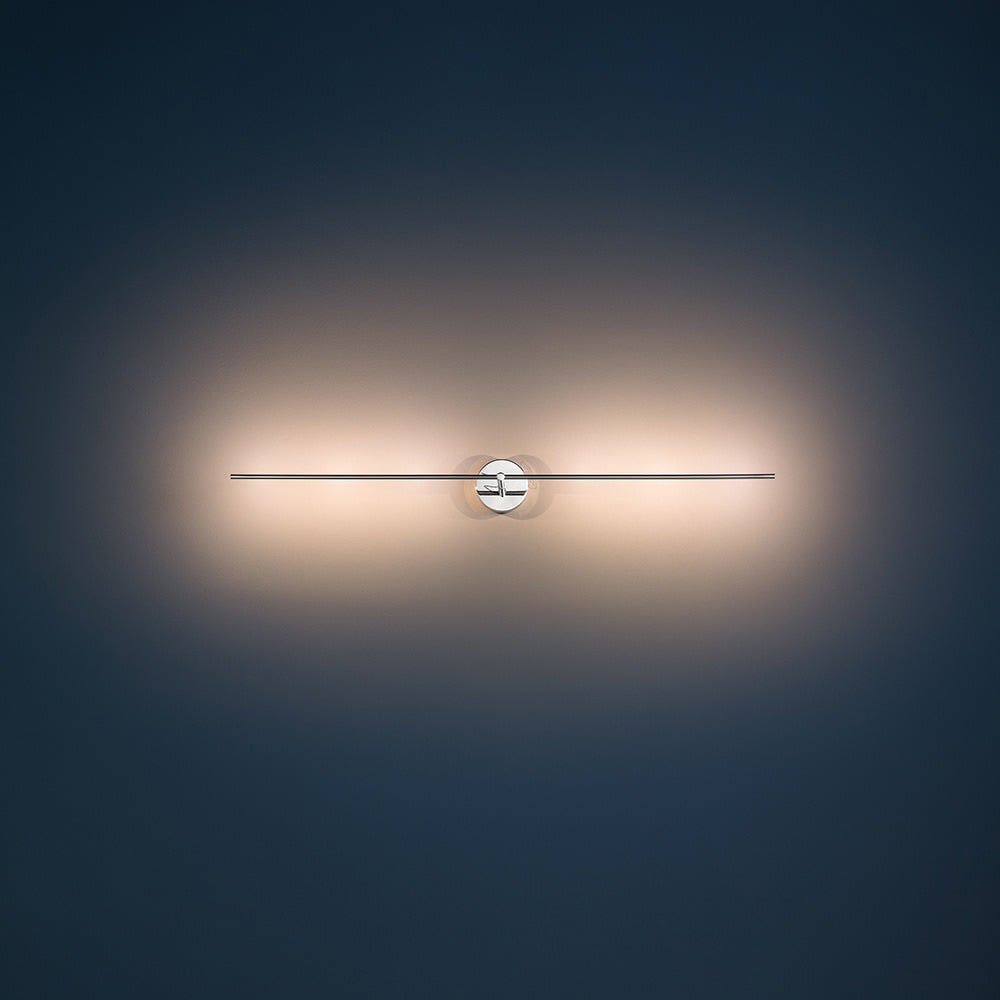
Catellani & Smith Light Stick CW LED Wall Light
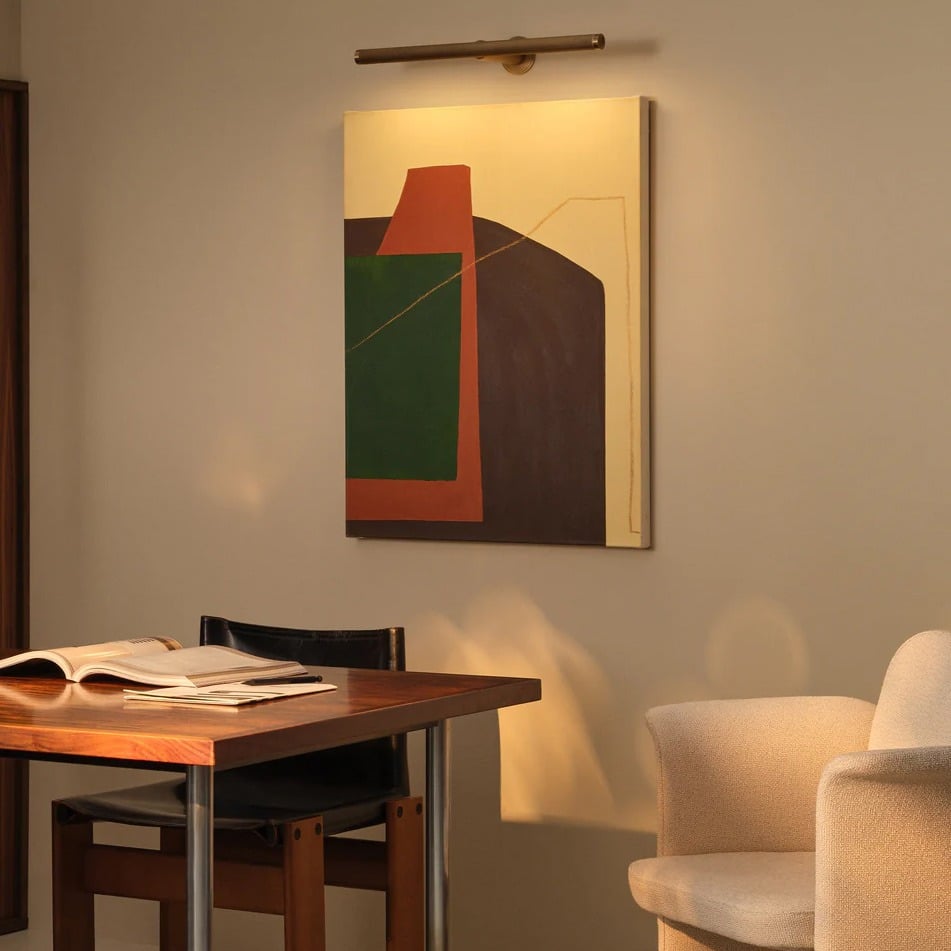
J. Adams & Co Talbot 570 Picture LED Wall Light
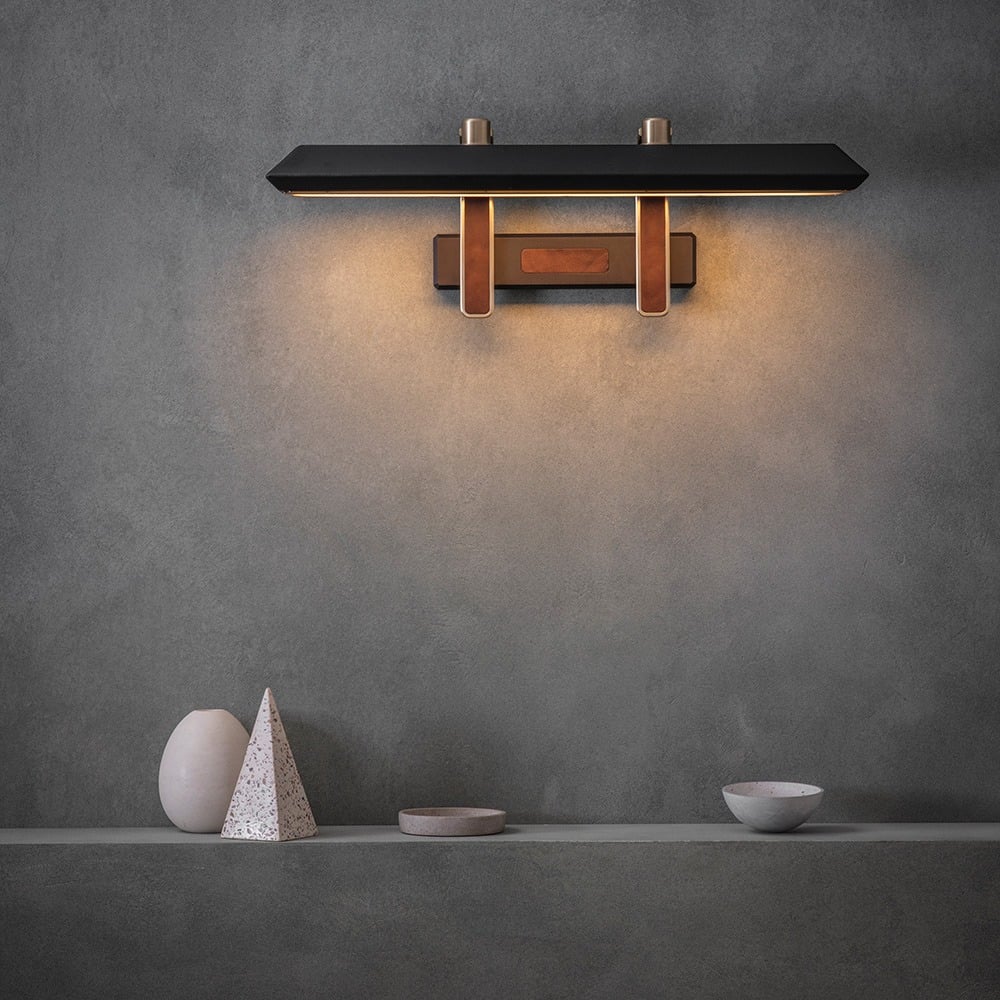
Bert Frank Rinato LED Long Wall Light
Directional Wall Lights
You might find that your electrical point is not positioned
centrally to where you want to hang your artwork, in which case a directional
wall light might suit your needs better.
Whether you want to light across a wall or even the corner
of a room, a directional wall light gives you the flexibility to move your
artwork around as time goes on. By simply altering the angle of the head of the
lamp, you can follow the pieces of art across your wall over the years and
continue to refresh your space without the electrical point being a limiting
factor.
If you are limited in terms of electrical points, you might find that a double-headed directional wall light is an economical way of lighting multiple points on a wall. Or, if you have only two large pieces on a wall, a double-headed wall light positioned centrally can unify them.
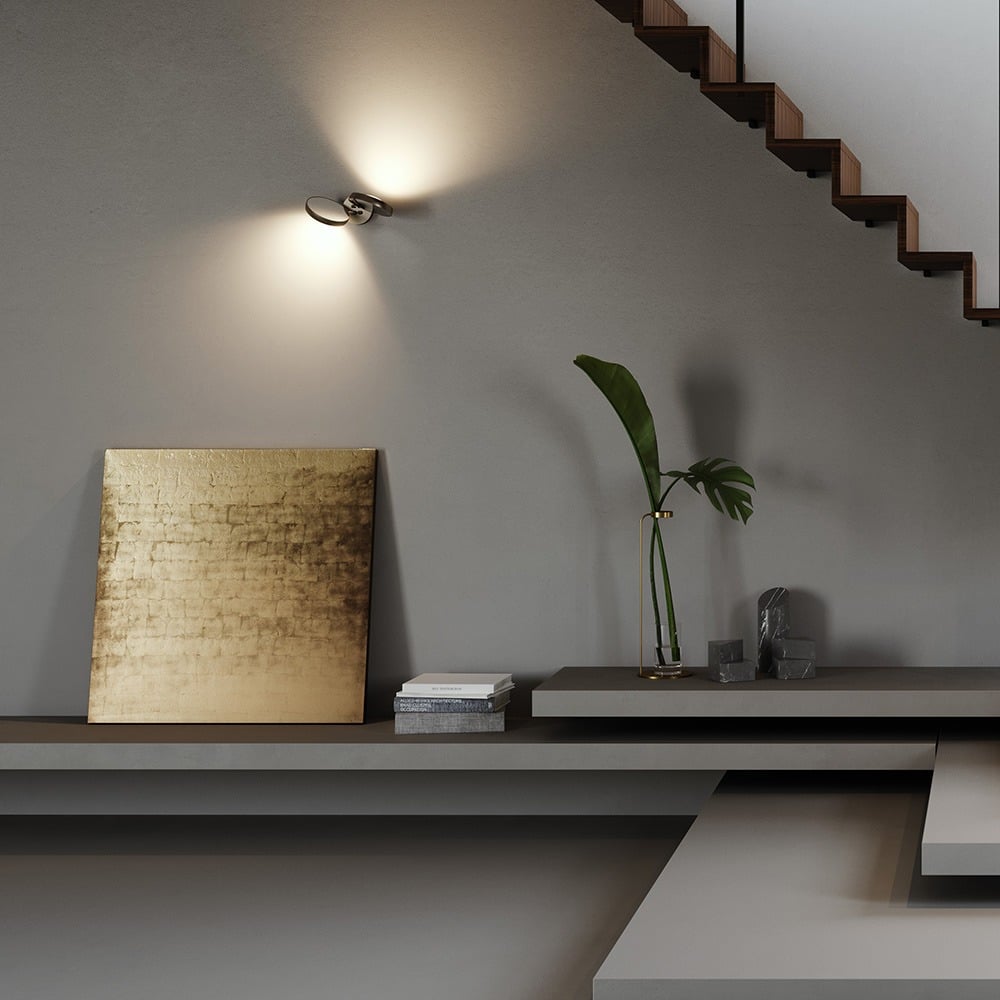
Lodes Nautilus LED Wall Light
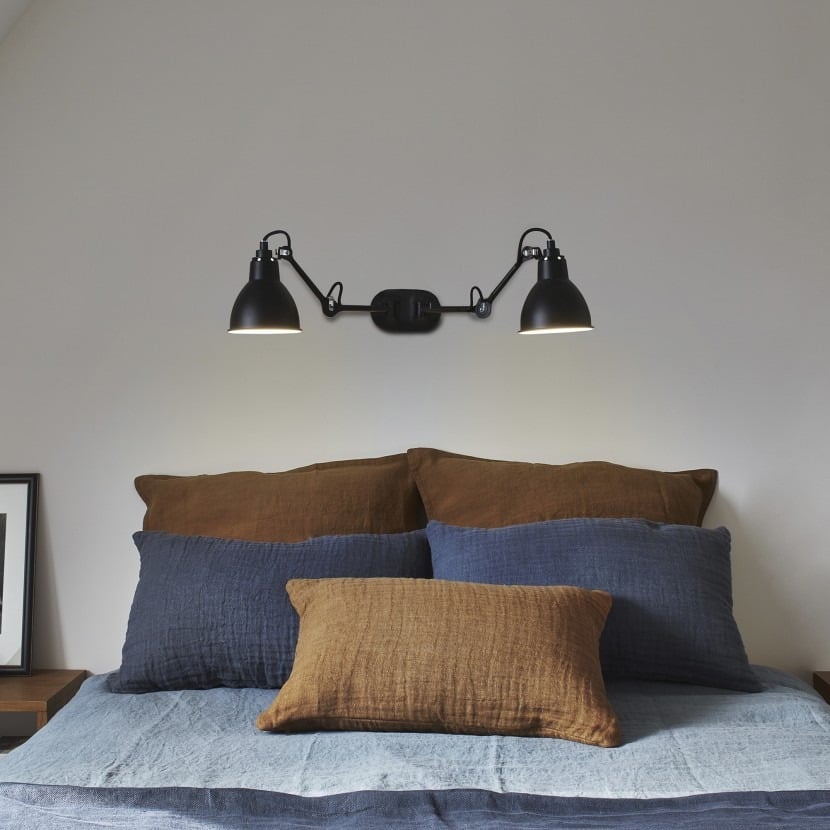
DCW éditions Lampe Gras 204 Double Wall Light
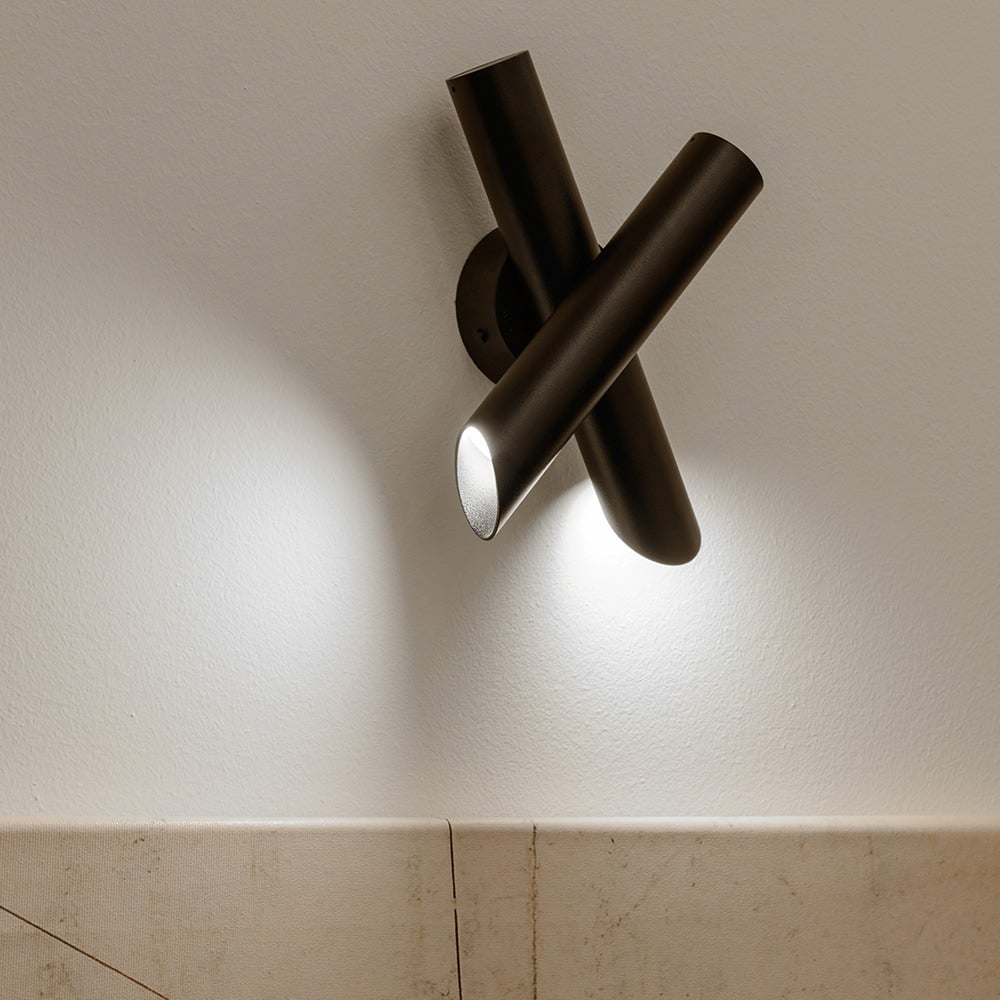
Nemo Lighting Tubes 2 LED Wall Light
Directional Spotlights
The directional spotlight is a universal solution to a
variety of lighting briefs, and gallery wall lighting is no exception. More
recently, modern art galleries and museums have begun to use directional
spotlights to create a dramatic effect that does justice to the renowned and
influential pieces on display. A sleek and slimline lighting solution, LED
spotlights are becoming increasingly customisable and, as a result, technical.
You can specify the colour temperature, beam angle, and even add lenses to them
that create different optical effects.
Things to Consider for Directional Spotlights:
Colour Temperature
o Truly a matter of taste and completely subjective, some people prefer a 2700K colour temperature to provide a cosy and welcoming feel to their lighting, while a more neutral 3000K usually gives a higher Colour Rendering Index (CRI), which will more accurately capture the colours in the artwork.
Beam Angle
o Narrow beam angles (between 8° and 20°) are perfect for highlighting smaller pieces of artwork, or a specific part of a larger piece. This will create a tight circle of light, the size of which depends on the distance between the light and the surface it’s lighting. The further away the light is, the larger the spot will become.
o Medium beam angles (between 20° and 30°) are suitable when you want to capture something slightly larger on the wall but without lighting the surrounding areas, maintaining a dramatic effect.
o Wide beam angles (30°+) are used for flooding a space with light, so if you want to light an entire wall, this would be the choice for you. Designed to create a wide wash that doesn’t distinguish any specific area, this will provide a softer, less dramatic feel to your gallery wall. This is great if you want to double your gallery wall lighting as a light for the surrounding space as well.
Additional Lenses
o Elliptical lens: an elliptical lens elongates the typically circular beam of light into an oval shape, allowing for a visually interesting and practical effect when needing to light wider spaces. Great for a gallery wall when you want to light a certain axis.
o Honeycomb lens: This lens will break up the light enough to prevent glare from the spotlight, so it is great to use when your gallery wall is next to a walkway or part of a hallway.
o Soft Filter: A soft filter will stop the spotlight from creating a harsh line of light and diffuse the edges of any beam, gradually dispersing the light. Perfect for those cosy spaces where you want a soft glow rather than a dramatic effect.
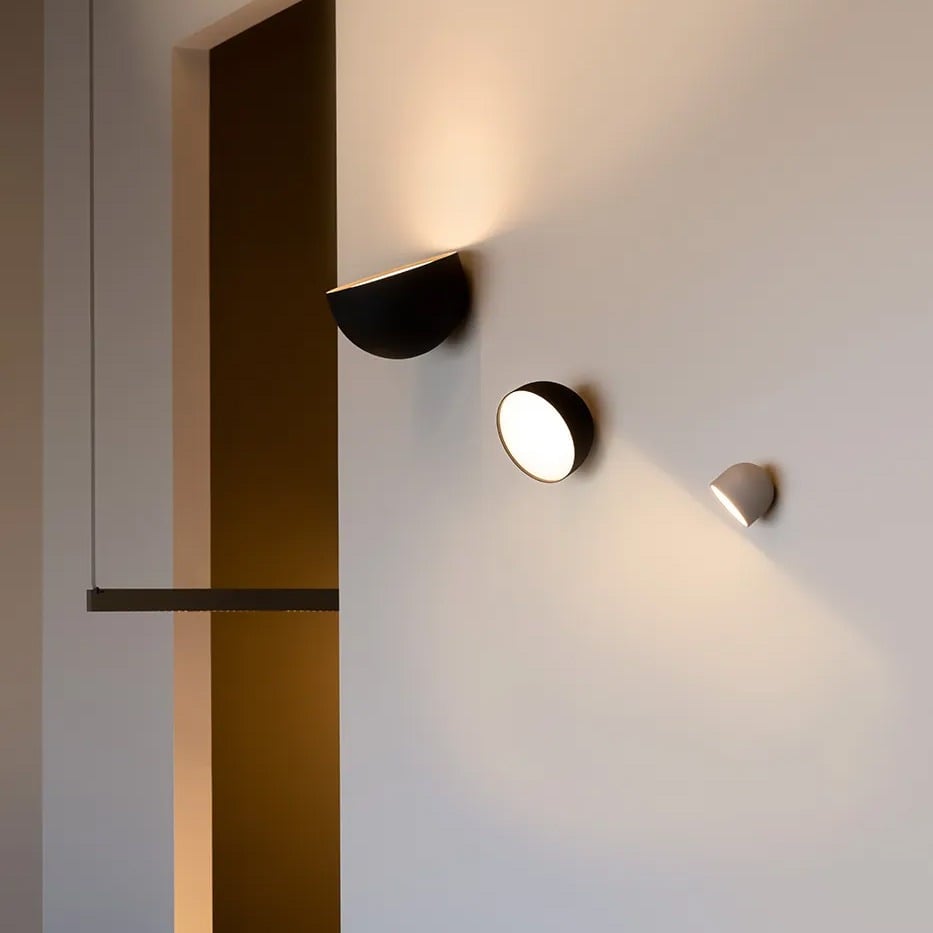
Vibia Plusminus Solo LED Ceiling / Wall Spotlight
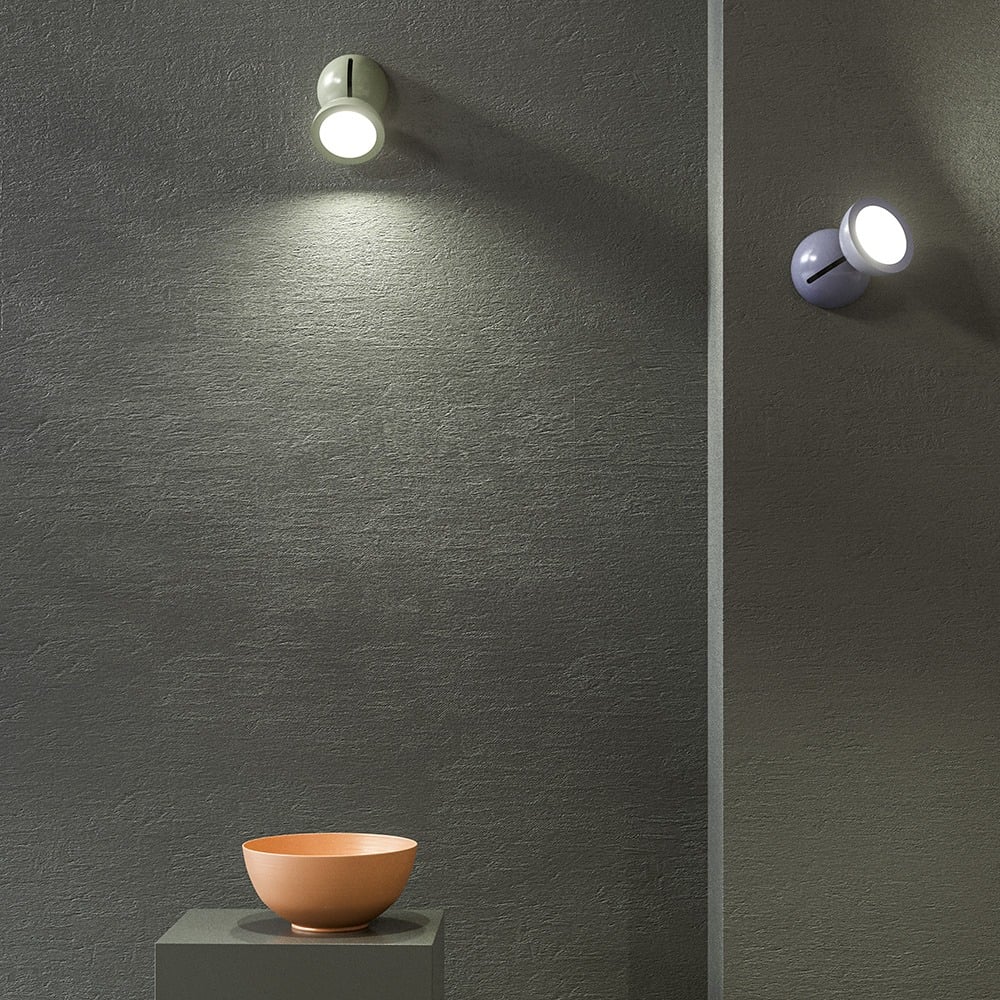
Axolight DoDot LED Ceiling / Wall Light
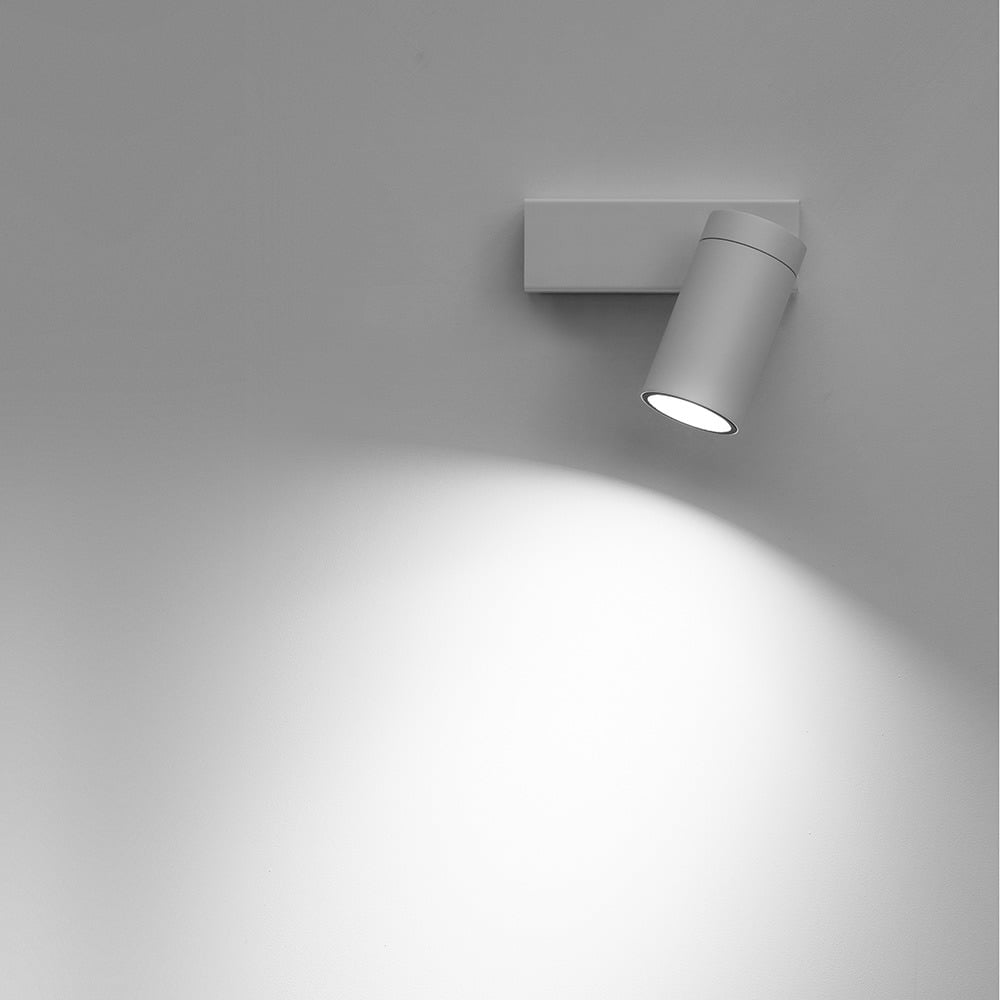
Davide Groppi Dot P 51 Surface Spotlight
The Benefits of LED
As most modern picture lights are integrated LED, which emit
less UV rays than the traditional halogen bulb, they are less harmful to
delicate paintings that can be affected by the harsh radiation from a halogen
bulb. If you have a retrofit fitting that takes a bulb, this is an important
consideration when using this to light your gallery wall, as an LED bulb will
be crucial in preserving the life of your prized art.


 Shop Lighting
Shop Lighting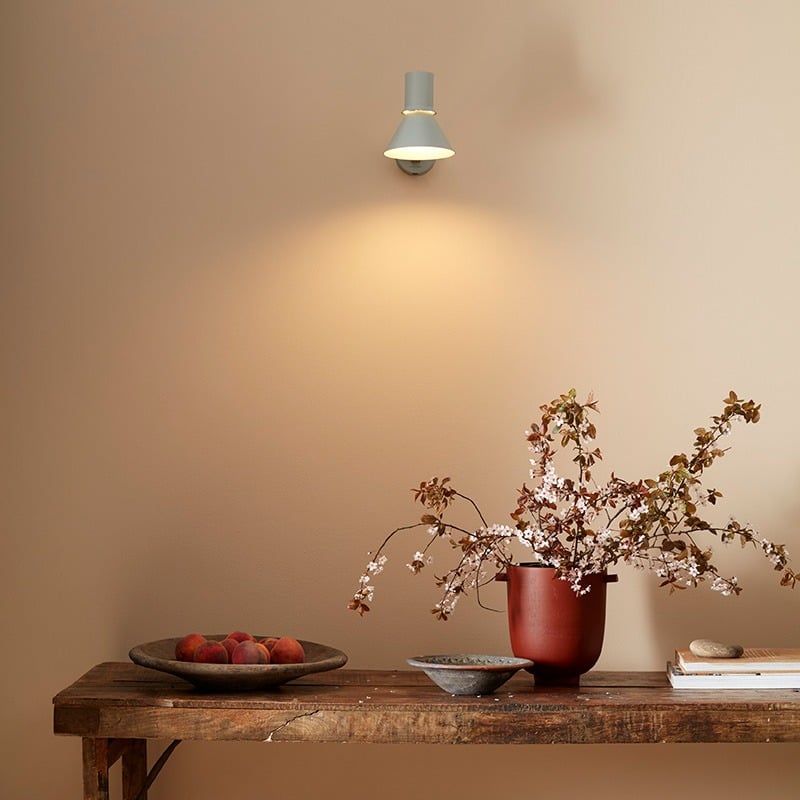
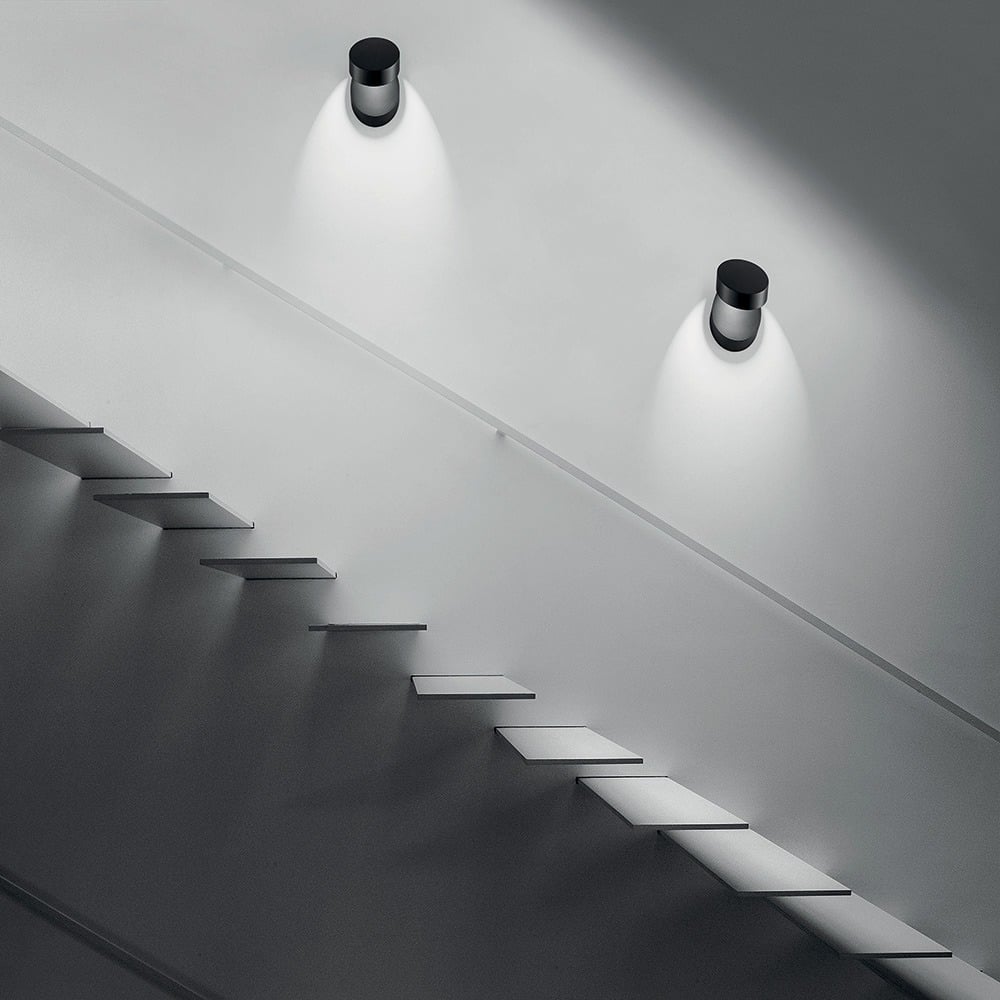
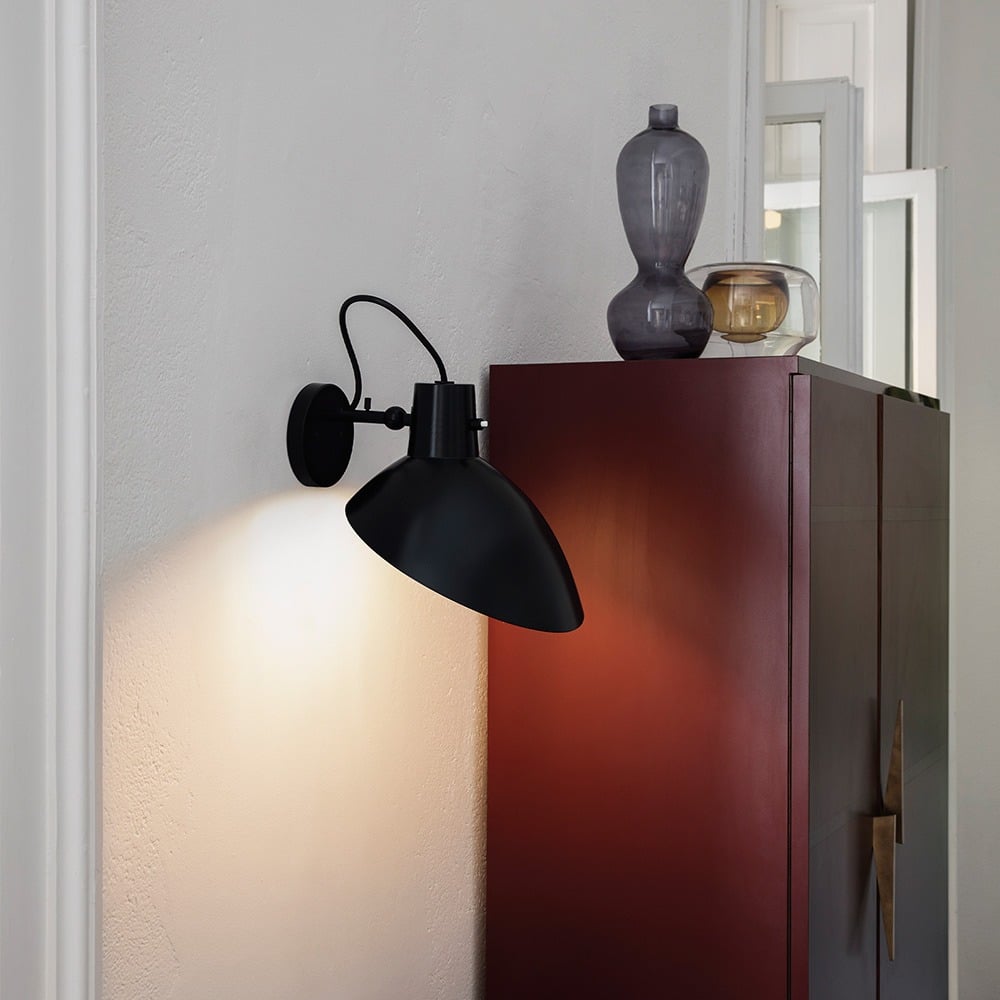



 100% Authentic products
100% Authentic products Free delivery on orders over £100 (UK Mainland)
Free delivery on orders over £100 (UK Mainland) 14 Days Return Policy
14 Days Return Policy
 Overseas Shipping Available
Overseas Shipping Available
 Over 70 Designer Brands
Over 70 Designer Brands
 Excellent Customer Service
Excellent Customer Service 








